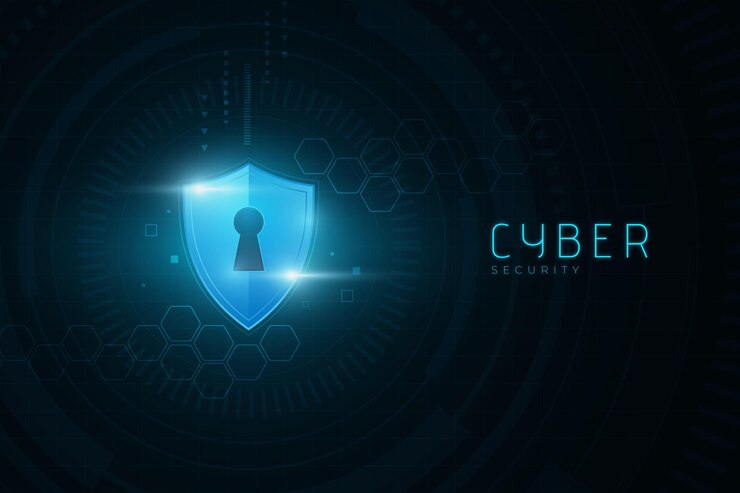Top Cybersecurity Courses to Protect Data & Fight Cyber Threats

Strong 8k brings an ultra-HD IPTV experience to your living room and your pocket.
In today's digital age, cybersecurity is more important than ever. With cyber threats evolving rapidly, businesses and individuals must stay ahead by gaining the necessary skills to protect sensitive data. Enrolling in a cyber security course can provide a strong foundation in security practices, ethical hacking, and threat mitigation. Below, we explore some of the top cybersecurity courses that can help you build expertise and secure your future in this high-demand field.
Why Cybersecurity Matters
Cyber threats, including hacking, data breaches, and malware attacks, have become increasingly sophisticated. Organizations across industries invest heavily in cybersecurity measures to safeguard data and maintain customer trust. This growing demand has led to a surge in cyber security course enrollments, as more professionals seek expertise in this field.
Top Cybersecurity Courses to Consider
1. Certified Ethical Hacker (CEH)
The CEH certification is one of the most widely recognized certificates in ethical hacking. It covers essential topics such as penetration testing, malware analysis, and network security. If you're looking to strengthen your cybersecurity skills, this cyber security course is a great choice.
2. Certified Information Systems Security Professional (CISSP)
CISSP is an advanced-level certification designed for experienced security professionals. It focuses on risk management, security architecture, and compliance. This course is ideal for those aiming for leadership roles in cybersecurity.
3. CompTIA Security+
CompTIA Security+ is an entry-level certification covering fundamental cybersecurity principles. It is well-suited for beginners looking to start their cybersecurity careers and gain a broad understanding of security concepts.
4. Google Cybersecurity Certificate
Google offers an introductory cyber security course for individuals with little to no experience. This course provides hands-on training and real-world scenarios to help learners understand essential security practices.
5. Certified Cloud Security Professional (CCSP)
As cloud computing becomes more prevalent, CCSP focuses on cloud security best practices, risk assessment, and compliance. This course is beneficial for professionals working in cloud environments.
6. Offensive Security Certified Professional (OSCP)
OSCP is a highly technical certification that emphasizes practical penetration testing skills. It is recommended for security professionals who want to specialize in offensive security.
7. SANS Cybersecurity Courses
SANS Institute offers various cybersecurity courses, ranging from beginner to advanced levels. These courses cover topics like incident response, digital forensics, and ethical hacking.
8. CISM (Certified Information Security Manager)
CISM is ideal for IT professionals looking to advance into cybersecurity management roles. It covers security governance, risk management, and compliance.
9. Cisco Certified CyberOps Associate
This course focuses on network security, incident response, and security monitoring. It is a valuable certification for those looking to work in security operations centers (SOCs).
10. MIT Cybersecurity Online Program
MIT offers an in-depth online cybersecurity course that covers advanced security concepts, cyber risk analysis, and emerging threats. It is designed for professionals looking to deepen their knowledge in cybersecurity.
How to Choose the Right Cybersecurity Course
When selecting a cyber security course, consider the following factors:
1. Career Goals: Determine whether you want to specialize in ethical hacking, network security, or cybersecurity management.
2. Skill Level: Choose a course that matches your current expertise, whether beginner, intermediate, or advanced.
3. Certification Recognition: Opt for courses that are globally recognized and valued in the industry.
4. Hands-On Training: Practical experience is crucial in cybersecurity, so look for courses that offer real-world labs and simulations.
FAQs: Frequently Asked Questions
Q1 What is a cyber security course?
A cyber security course provides training on protecting computer systems, networks, and data from cyber threats, hacking, and breaches.
Q2. Who should take a cyber security course?
Anyone interested in IT security, ethical hacking, or data protection, including students, IT professionals, and business owners, can benefit from these courses.
Q3. What are the key topics covered in a cyber security course?
Topics include network security, ethical hacking, encryption, threat analysis, penetration testing, malware defense, and cloud security.
Q4. Are there any prerequisites for enrolling in a cyber security course?
Some courses require basic knowledge of networking, programming, or IT systems, while beginner-friendly courses start from scratch.
Q5. How long does it take to complete a cyber security course?
Course duration varies from a few weeks to several months, depending on the level (beginner, intermediate, or advanced).
Conclusion
The cybersecurity industry is growing rapidly, and skilled professionals are in high demand. Investing in a cyber security course can open doors to lucrative job opportunities and equip you with the skills needed to combat cyber threats. Platforms like EasyShiksha.com offer valuable courses to help individuals kickstart or advance their cybersecurity careers. Whether you are a beginner or an experienced professional, there is a cybersecurity course tailored to your needs. Secure your future today by enrolling in a course that aligns with your goals!
Note: IndiBlogHub features both user-submitted and editorial content. We do not verify third-party contributions. Read our Disclaimer and Privacy Policyfor details.


